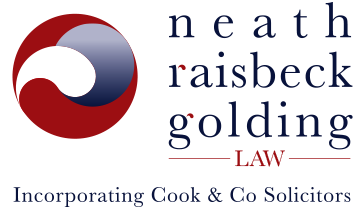Inherent Defects - the pitfall for Tenants

This week, it has been reported in the press that construction giant Carillion declared insolvency , possibly putting in the region of 20,000 employees out of work and owing up to 30,000 firms nearly £1.5 billion.
Carillion’s work has been linked to HS2 and various schools, prisons and hospitals. Many tenants and new owners of buildings constructed by Carillion are now questioning liability for any defects in their construction. If Carillion is liable, but is insolvent, the question arises as to how these buildings will be repaired.
In situations like these, it is imperative that the contracts and leases used between clients and contractors are drafted carefully to protect tenants from huge expenditure relating, mainly, to ‘inherent defects’.
An inherent defect is any defect in the premises or in anything installed in or on the premises which is attributable to defective design, defective workmanship, defective materials or defective supervision of the construction or installation of anything in or on the premises. Unlike a latent defect, inherent defects are not apparent upon reasonable inspection of the premises, and therefore the tenant will be unwilling to take responsibility.
According to Ravenseft Properties Limited v Davstone (Holdings) Ltd [1979] , whether a defect is inherent or latent is always a question of fact and degree.
Liability for inherent defects depends on the tenant’s repairing covenant in the lease. The onus is on the tenant to make sure that the repairing covenant in the lease excludes liability for inherent defects as far as possible.
However, a landlord is unlikely to agree to such a covenant as this places the burden of responsibility on him. The covenant needs to be defined cautiously, otherwise disputes could arise over the interpretation of the covenant in future litigation processes.
Everyone, whether landlord or tenant, will benefit from having a clear and unambiguous lease or transfer. Topics which need careful consideration and will assist landlords and tenants in understanding their obligations could include:
- whether tenants are responsible for the costs of inherent defects;
- whether inherent defect liability for tenants in new properties is excluded;
- whether tenants are given an express right to enforce the building contract;
- whether the landlord has latent defect insurance cover for the fabric of the building.
If you own a property, these topics may apply to you. It is even more likely if you are a leaseholder or if you have purchased a recently built property.
If you already own your property, we can review your lease or transfer, consider your specific circumstances and advise you on what to do if something goes wrong.
If you are yet to purchase your property, or are a developer, we can advise you on how best to proceed and protect yourself for the future.
Whether you are concerned about possible inherent defects or just want to understand the terms of your Lease, we will be happy to take you through this complex area. To discuss, contact our Property team or by emailing hello@cookco.co.uk.
